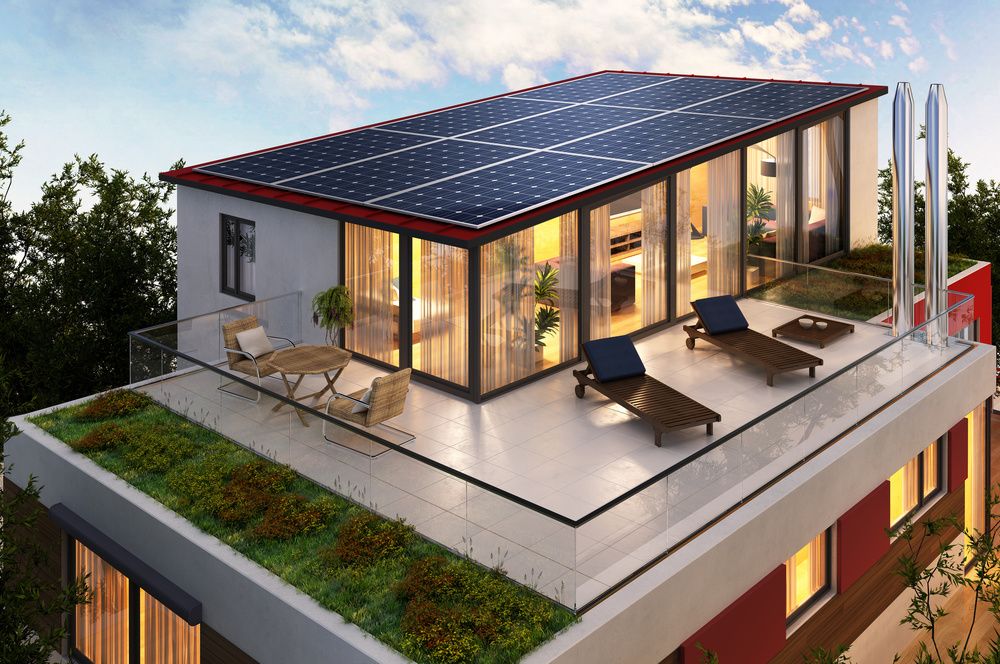Solar panels serve several important functions in residential buildings, primarily related to harnessing solar energy and converting it into electricity or heat.
- Electricity Generation: The primary function of solar panels in residential buildings is to generate electricity from sunlight. Solar photovoltaic (PV) panels use semiconductor materials to convert photons from sunlight into direct current (DC) electricity.
- Reduced Energy Bills: Solar panels help homeowners generate their electricity, reducing their reliance on the grid and lowering energy bills. Excess electricity can be fed back into the grid in many regions, earning credits or income through net metering or feed-in tariffs.
- Environmental Benefits: Solar panels help reduce the carbon footprint of residential buildings by producing clean and renewable electricity. This contributes to mitigating climate change and reducing air pollution.
- Energy Independence: Solar panels enable homeowners to become more energy-independent by producing their electricity. This can be especially valuable during power outages or when living in remote areas.
- Energy Storage: When paired with energy storage systems (e.g., batteries), solar panels can store excess energy generated during the day for use at night or during periods of high demand. This function enhances energy self-sufficiency and resilience.
- Hot Water Production: Solar thermal panels or solar collectors, which are different from PV panels, are designed to capture sunlight to heat water for domestic use, including bathing and heating.
- Heating and Cooling: Solar thermal panels can also be used in conjunction with heat pumps or radiant floor heating systems to provide space heating and cooling in residential buildings, reducing the need for traditional fossil fuels or electricity for heating.
- Increased Property Value: Solar panels can increase the resale value of a residential property. Many homebuyers are attracted to homes with existing solar panel installations due to the potential for energy cost savings.
- Long-Term Investment: Solar panels have a long lifespan (typically 25 years or more), making them a reliable and long-term investment that can provide a steady source of clean energy for decades.
- Energy Efficiency: Solar panels promote energy efficiency by utilizing renewable energy sources and reducing the need for fossil fuels, leading to a more sustainable and eco-friendly home.
- Grid Support: In some regions, residential solar panels can support the electrical grid by supplying excess energy back to the grid during sunny days, helping to stabilize the electricity supply.
Overall, solar panels in residential buildings contribute to energy sustainability, cost savings, environmental benefits, and increased energy independence, making them a valuable addition to modern homes.


